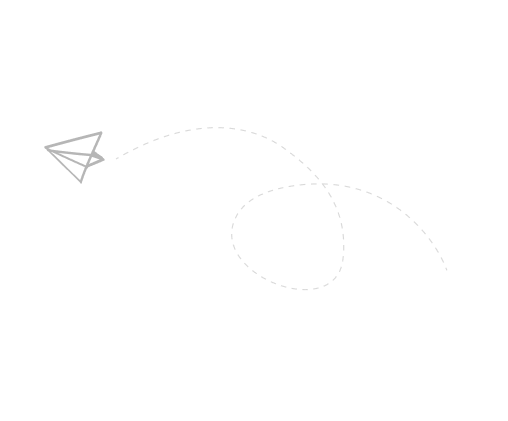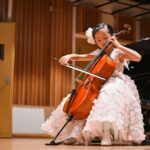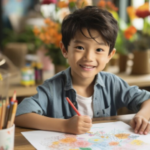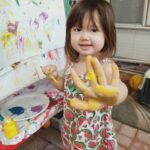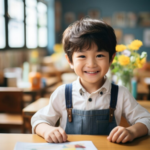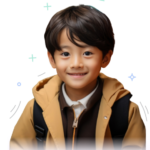
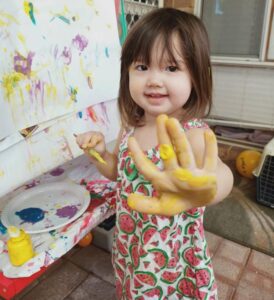
Introduction
Kindercampus is the first private preschool in Singapore to lead the way in Gifted Education for young children since 1996. We first began as a project-based preschool and in 2007, we brought in Gifted and Talented programmes and introduced Differentiated Learning. More recently, in 2023, we introduced Brain-Based Learning and became the first preschool in Singapore to adopt Mind, Brain and Education (MBE) Science. We believe that the best classrooms have no learning ceiling, and we are dedicated to helping young learners aged 2 to 6 years old reach their fullest potential through our eclectic curriculum, multidisciplinary approach to the teaching-learning process and by understanding the workings of the human brain.
The best classroom has no learning ceiling
Education, cognitive neuroscience and educational psychology equals Mind, Brain and Education Science.
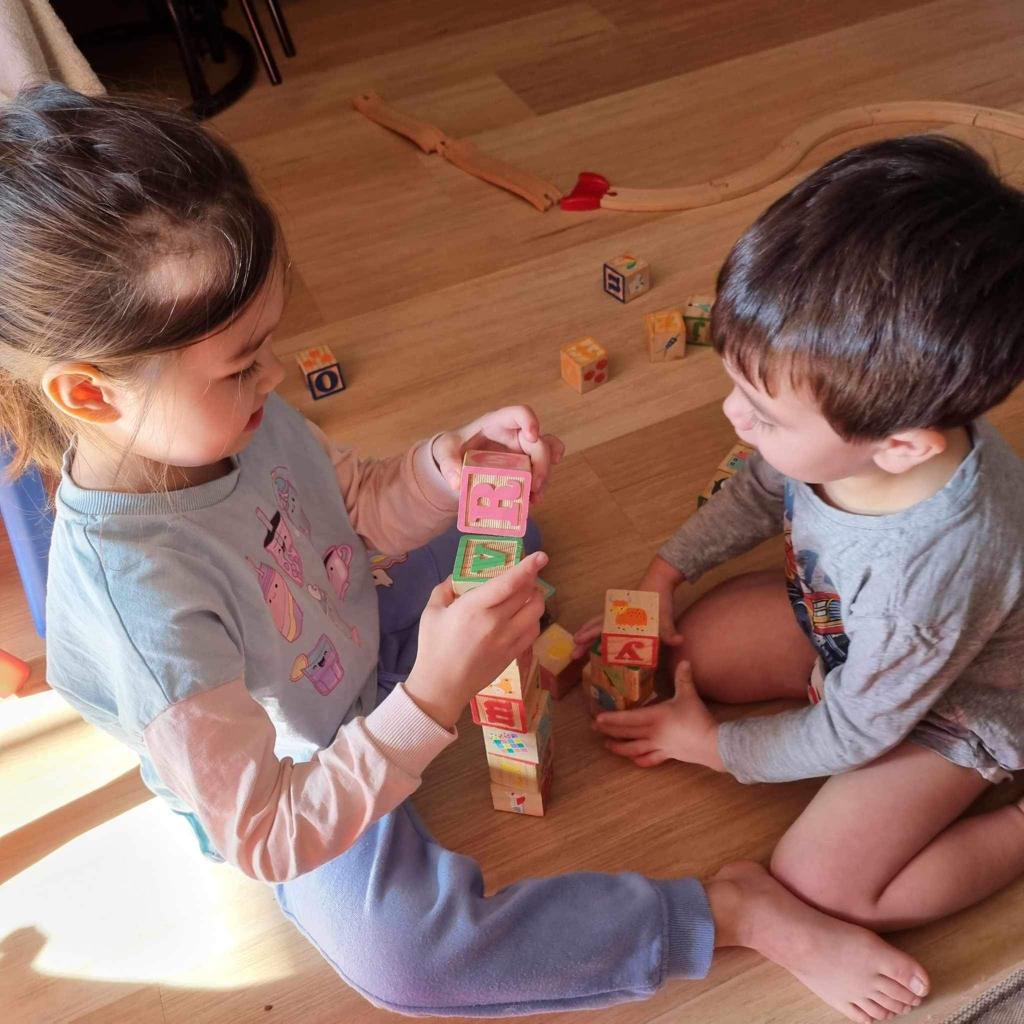
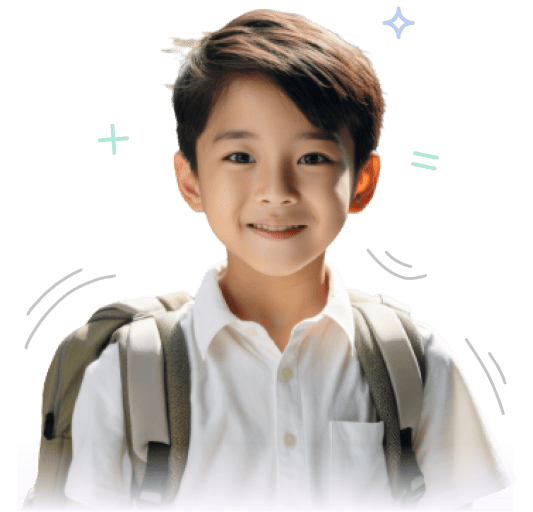
WE SEE WITH OUR BRAINS, NOT WITH OUR EYES.
–Norman Doidge, 2007
Our Program
The Gifted and Talented programme in Kindercampus is a Brain-Based Learning approach to learning and teaching that adopts Mind, Brain and Education (MBE) Science.
MBE Science is an academic multidisciplinary field that integrates Education, Cognitive Neuroscience and Educational Psychology. The three core academic disciplines intersect to change the way in which we view and approach the teaching-learning process and offers evidence-based solutions and methodology to the classroom.
MBE Science is a careful selection of only the best information that can inform the new science of teaching and learning, and our teachers are equipped with the knowledge and tools to design instruction that is tailored to the unique needs of individual students, and our program differentiates children’s learning to help the brain learn best at its optimal level of functioning.
MBE Science focuses on how the brain learns and emphasizes on the idea that learning is a complex process that interplays on different cognitive and emotional factors. These factors include attention, memory, motivation, emotion, empathy and social cognition. Our school is committed to the ideology of MBE Science.
We believe in the neuroplasticity of the brain, and our goal is to nurture and support whole-brain development in our children.
THE BEST CLASSROOMS HAVE NO LEARNING CEILING.
Our Curriculum
Our eclectic curriculum removes the learning ceiling and provides exciting, challenging and investigative learning opportunities for children to develop a lifelong motivation and love for learning.
We conduct regular assessments and planning tailored for each individual child to maximise their potential by clearly detecting individual strengths and weaknesses, problems, gifts as well as the need for remediation and celebration.
In Kindercampus, we offer a varied curriculum which includes a wide range of subjects such as English and Chinese Language, Mathematics, Literature, Science, Social Studies, Sports, Visual and Creative Arts, Theatre and Drama, and Music and Movement.
We believe in both in and out of classroom learning, and have many excursions planned throughout the school year.
We also offer a comprehensive selection of enrichment programmes provided by external providers including Gymnastics, Hip Hop Dance, Piano, Violin, Chinese Speech and Drama, Phonics and Maths Olympiad.

Learning Environment
A CLASSROOM OF CHILDREN IS LIKE A GARDEN. IT NEEDS THE RIGHT CARE AND ENVIRONMENT TO GROW AND FLOURISH.
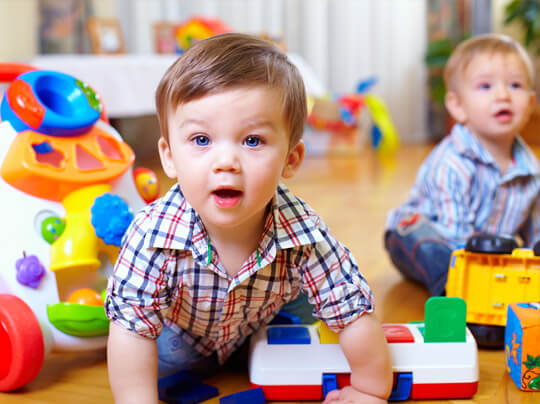
All learning happens everywhere. While your children are in school, the environment is the biggest influence in your children’s growth and learning. In Kindercampus, we build a positive learning environment where children can express their ideas, thoughts and feelings freely.
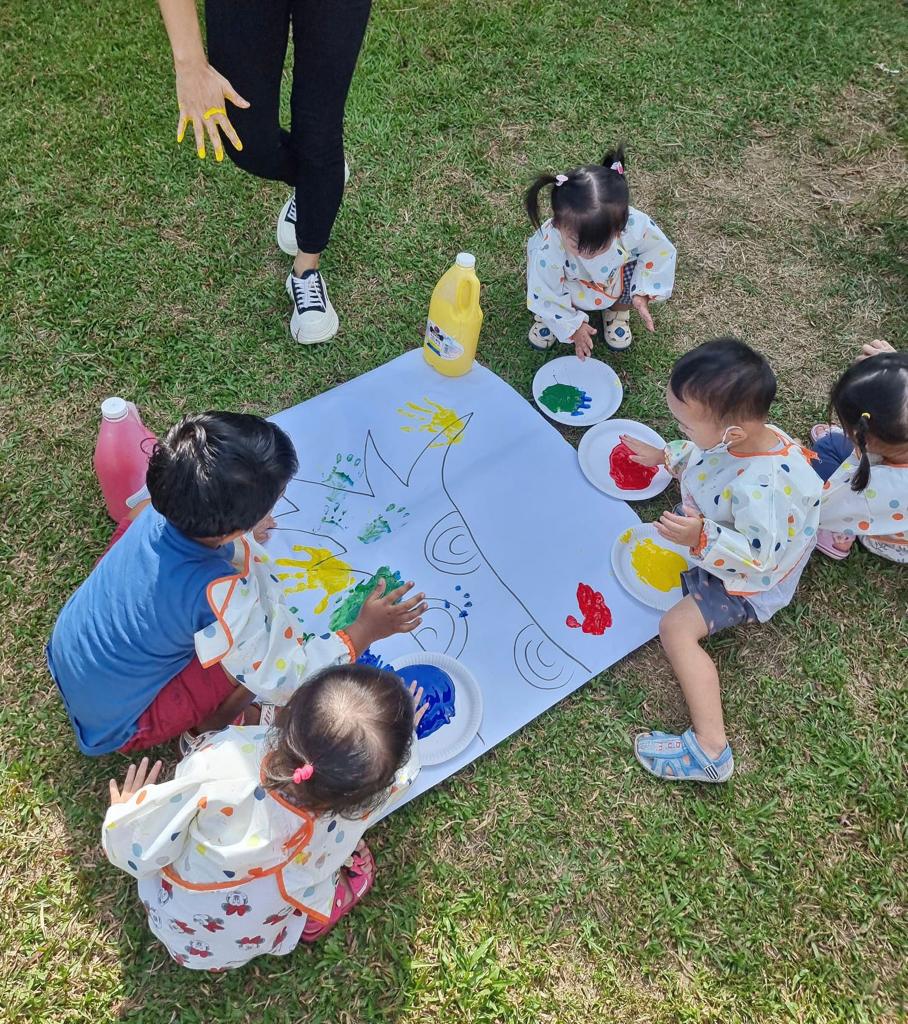
Our school environment provides multi-sensory input such as smell, sight, sound and touch. The neuroscience of multi-sensory learning is that multi-sensory activities are based in whole brain learning. We learn more effectively while using multiple senses than while using only one sense. Every child learns differently and do not process information the same way, and through multi-sensory teaching, we can cater to the specific learning needs of individual children. Such activities have also been proven to positively impact focus and attention, memory, emotions and problem solving in the classroom.
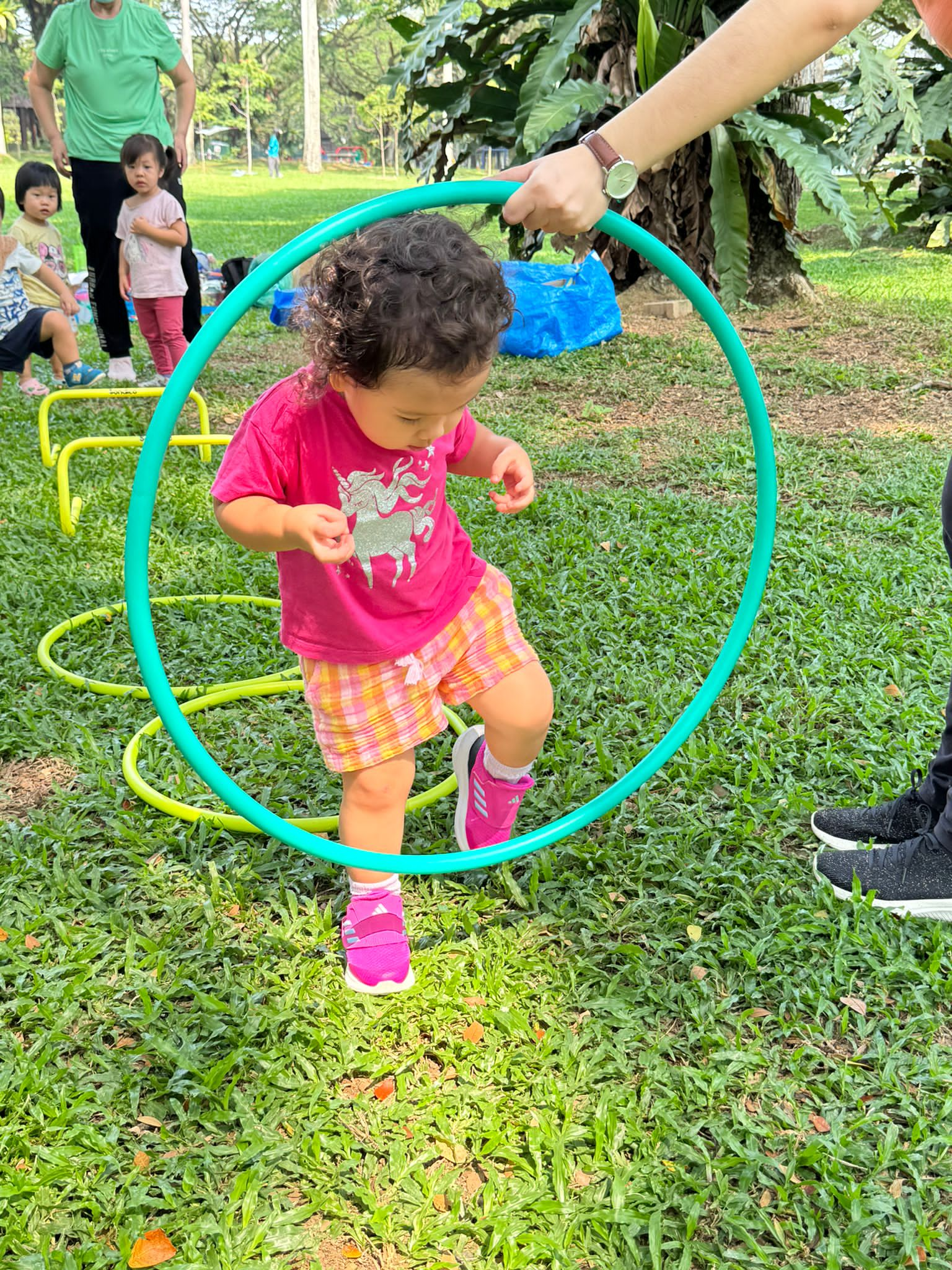
Our children are actively engaged in physical movement and activities throughout the day in school for these impact health, self-regulation and cognition.
Affective empathy is cultivated in our school and cognitive empathy is instilled in our children to enhance their social and emotional intelligence. These form a great part of the daily lives of Kindercampus’ children, teachers and staff.
We believe that play-embedded learning is the most powerful method in supporting children’s learning. Play-based activities activate multiple regions in the brain, including memory, attention and problem solving. When children play, they actively interact with the environment while engaging in hands on experiences. Play also encourages and fosters active involvement, social interaction, physical development and creativity and imagination.
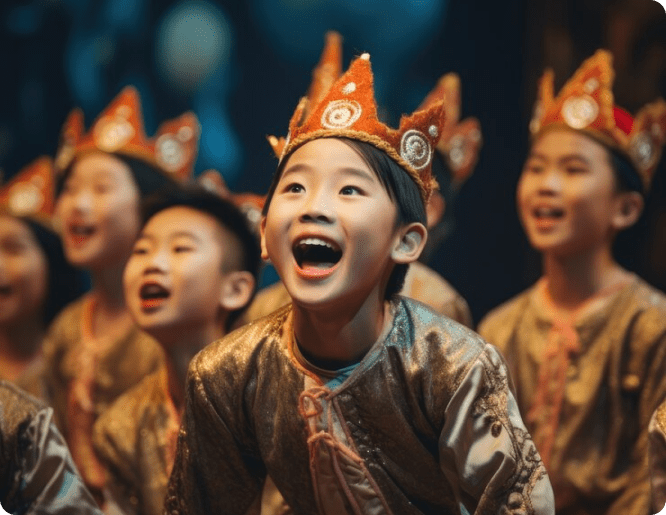
Our School
Welcome to Kindercampus, Singapore’s foremost private preschool and leader in Gifted Education for Young children. Since our establishment in 1996, we have been at the forefront of providing high-quality education and care for young learners. Situated initially at Dunsfold Drive for a year, and later at Chiltern Drive for eight years, we have now found our permanent home at our present premises.
At Kindercampus, we are proud of our rich history and commitment to excellence. We take pride in being the first preschool in Singapore to adopt the renowned Lilian Katz project approach as an integral part of our curriculum. This approach, widely recognized and embraced by early childhood educators both in Singapore and internationally, enables our students to engage in hands-on, meaningful projects that foster creativity, critical thinking, and problem-solving skills.
Our Philosophy
We believe that all children deserve the best care and education we can give them. They should be nurtured with patience in a safe, healthy, positive and supportive environment.
Our program aims to identify, cultivate and nurture the giftedness in all the children in our school. We challenge and motivate children to excel and to achieve and reach his highest potential.
For this reason we provide a flexible holistic program with acceleration options and different approaches to suit each child’s learning development.
Ongoing assessment of children is an important element in supporting children’s growth and development so as to optimise learning.
Our teachers are mentors, counsellors and friends to the children. We value and respect each child’s unique learning or special needs by understanding them, listening to their feelings, thoughts and appreciate their ideas.
We create a child friendly, attractive and stimulating learning environment to invite and motivate children to learn naturally. We value each child’s background and respecting the cultural differences by establishing a positive relationship with all families.
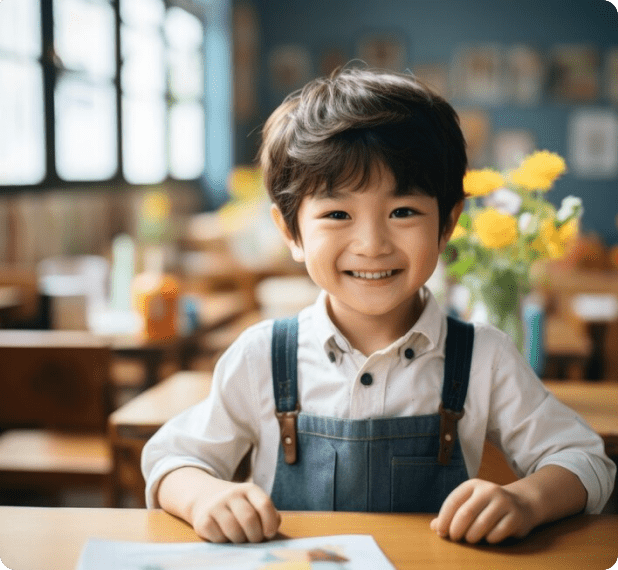
What Our Graduates Say
Reviews
A Classroom of Children is like A Garden. It Needs the right care and environment to grow and flourish.


